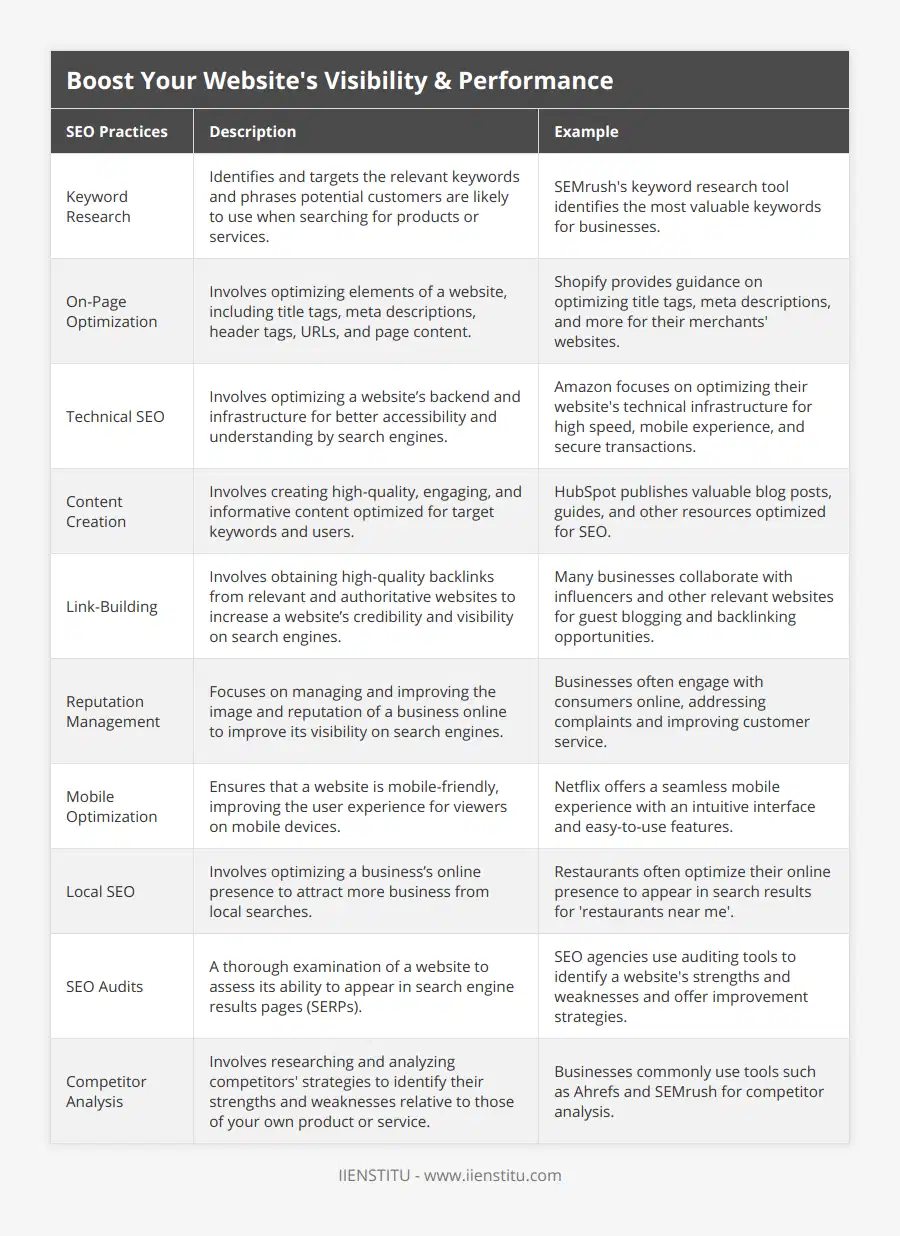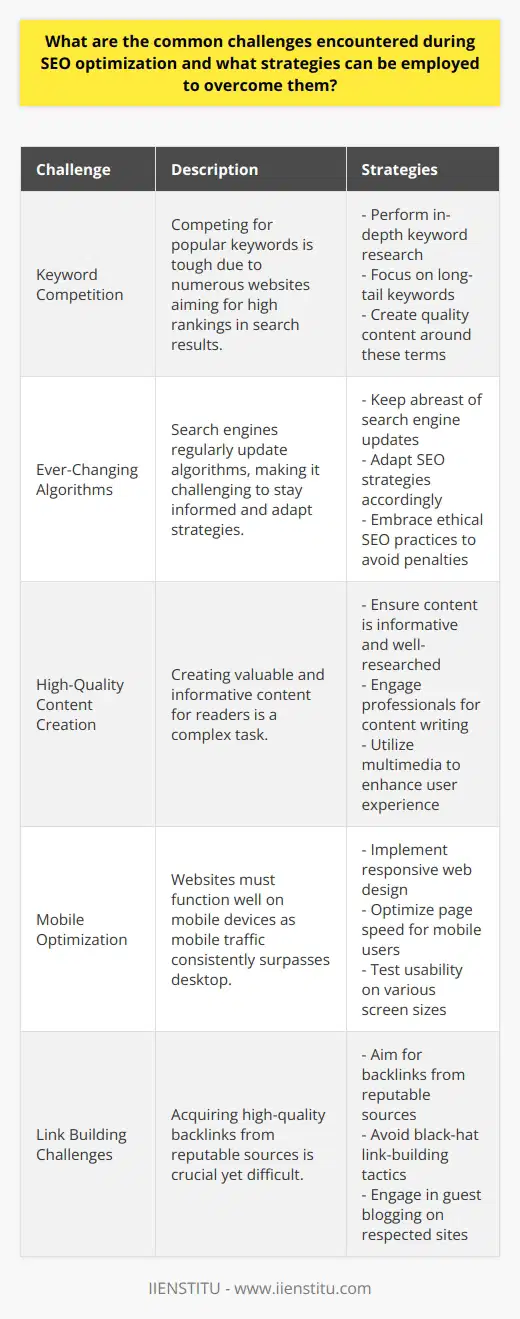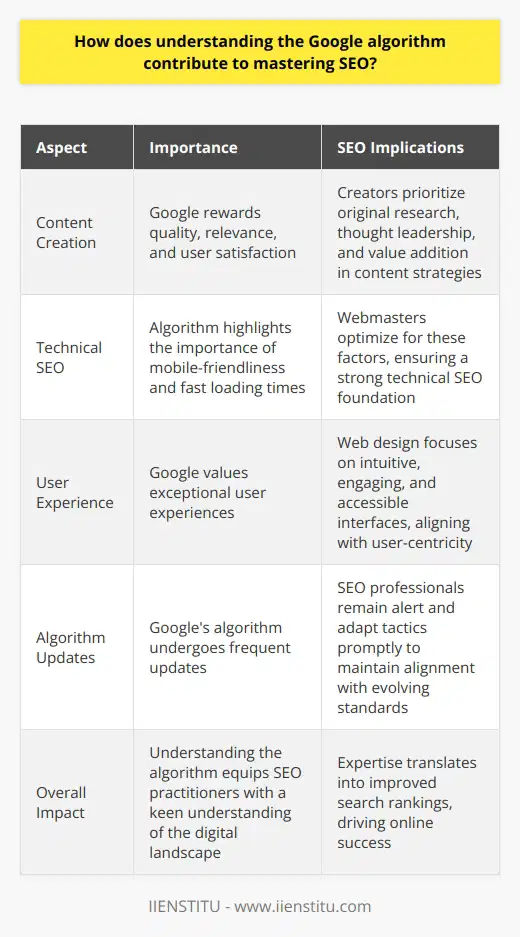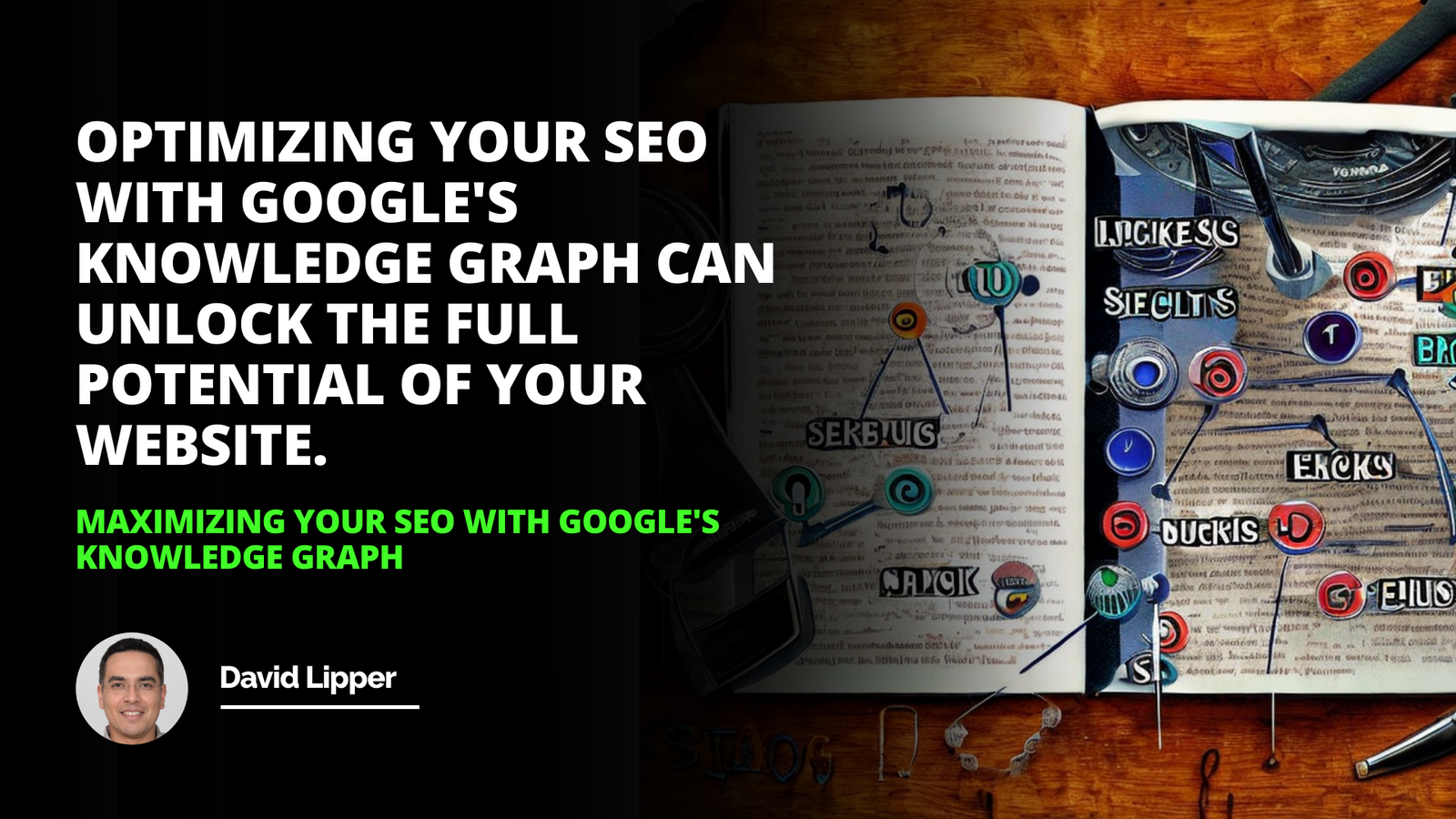
In the bustling world of the digital age, I've often found myself pondering over the immense impact of the internet on our daily lives. One sunny afternoon, sipping coffee at my favorite café, it struck me how businesses today thrive or fade based on their online presence. This realization led me down the rabbit hole of Search Engine Optimization, or as many know it, SEO.
The Journey Begins: Understanding SEO
I recall the first time I tried to define search engine optimization. It was like trying to explain the universe in a nutshell! So, what is SEO? At its core, SEO is the practice of enhancing a website's visibility on search engines like Google or Bing. When done right, it propels a website to the top of the Search Engine Results Pages (SERPs), ensuring that more people find and visit the site.
Let me give you an example. Imagine you're hunting for the "best Italian restaurant in town." You'd probably type that into a search engine, and voilà, a list appears. The restaurants at the top didn't get there by accident; they're likely utilizing savvy SEO strategies to be your first choice.
The Essence of SEO: More Than Just Keywords
Over the years, I've learned that optimising SEO isn't just about sprinkling keywords throughout your content. It's a harmonious blend of art and science, requiring both creativity and analytical skills. Key components include:
1- Keyword Research
- This is like finding the most searched keyword for employee benefits package overview in HR—a critical step to understand what your audience is looking for.
2- On-Page Optimization
- This involves tweaking elements on your website, such as meta tags and headlines, to better align with your target keywords.
3- Technical SEO
- Ensuring your site's backend is in tip-top shape so search engines can crawl and index it effectively.
4- Content Creation
- Crafting valuable and engaging content that resonates with your audience.
5- Link Building
- Earning backlinks from reputable sites to boost your site's authority.
Personal Anecdotes: Learning from Experience
I remember working with a small local bookstore struggling to make sales. They had fantastic books but a minimal online presence. We embarked on a mission to revamp their website using SEO search optimization techniques. By integrating relevant keywords and improving their site's structure, their visibility skyrocketed. Within months, they saw a 50% increase in online sales! It was like witnessing magic, but really, it was the power of search optimization.
Demystifying SEO: Key Concepts Explained
What is SEO?
To put it simply, SEO (Search Engine Optimization) is the practice of making your website more attractive to search engines. When someone asks, "Define SEO", I like to think of it as the bridge between your content and your audience. It's about ensuring that when people search for topics related to your business, your website is the first thing they see.
The Role of Search Engines
Search engines are like librarians of the internet. They organize and present information based on what's most relevant to the user. Understanding how they work is essential for effective SEO & Marketing strategies.
<u>Understanding SEO is crucial for online success.</u>
Key factors search engines consider include:
Relevance: How closely your content matches the search query.
Authority: The credibility of your website.
User Experience: Site speed, mobile-friendliness, and overall usability.
The Importance of Keywords
I can't stress enough how crucial keywords are in the realm of SEO. Think of keywords as the language between you and the search engines. They help define what your content is about.
In one of our campaigns, we focused on the keyword "SEO what is SEO". It seemed repetitive, but we discovered that many users typed exactly that into search engines, seeking simple explanations. By tailoring content around that phrase, we tapped into a significant traffic stream.
Strategies for Effective SEO
1. Quality Content Creation
Content is, and always will be, king. Providing valuable, informative, and engaging content not only attracts visitors but also encourages other sites to link to yours, enhancing your site's authority.
2. Technical Optimization
Ensure your site loads quickly, is mobile-friendly, and has a clean sitemap. I've found that even the most captivating content can fall flat if the site's technical aspects aren't up to par.
3. Backlink Building
Building relationships with other reputable websites can earn you valuable backlinks. This signals to search engines that your site is trustworthy.
4. User Engagement
Engage with your audience through comments, social media, and feedback forms. The more interaction, the better your site's standing in the eyes of search engines.
Common Misconceptions about SEO
Despite its significance, SEO is often misunderstood. Some believe it's a one-time task, but in reality, it requires ongoing effort. Others think of it as a manipulative practice, but ethical SEO focuses on improving user experience and providing value.
Digging Deeper: Advanced SEO Techniques
Over time, as I delved deeper into SEO engine optimization, I discovered that staying ahead requires embracing advanced techniques. Let's explore some of these strategies.
Optimising SEO for Voice Search
With the advent of devices like Alexa and Siri, voice search is becoming increasingly popular. Optimising SEO for natural language queries is essential. For instance, people might say, "Hey Siri, define search engine optimization," which differs from typed queries. Incorporating conversational phrases in your content can capture this traffic.
Local SEO
For businesses targeting local customers, SEO search optimization focuses on geo-specific keywords. I helped a friend who owns a café by optimizing for "best coffee shop near me." This simple search optimization tweak led to a noticeable increase in foot traffic.

Practical Steps to Define Search Engine Optimization Success
To truly measure the effectiveness of your efforts, it's crucial to set clear goals and track progress.
Key Performance Indicators (KPIs) include:
1- Organic Traffic Growth
- Monitor the number of visitors arriving via unpaid search results.
2- Keyword Rankings
- Keep an eye on how your targeted keywords are ranking over time.
3- Conversion Rates
- Analyze how well your site turns visitors into customers or subscribers.
4- Bounce Rate
- A high bounce rate may indicate issues with site content or user experience.
By regularly reviewing these metrics, you can adjust your strategies for better results.
The Intersection of SEO and Marketing
It's fascinating how SEO & Marketing intertwine. Effective SEO isn't just a technical endeavor; it's a critical component of broader marketing campaigns. When planning a marketing strategy, integrating search and SEO ensures that your message reaches the right audience.
I once collaborated with a marketing team launching a new product. By combining content marketing with SEO search engine tactics, we achieved a significant increase in both visibility and sales.
SEO Myths Debunked
In my journey, I've come across several misconceptions:
SEO is Dead: Far from it! As long as search engines exist, SEO engine optimization remains vital.
It's All About Keywords: While keywords are important, user experience and quality content are equally crucial.
Backlinks Don't Matter Anymore: Backlinks from reputable sites continue to be a strong ranking signal.
Understanding and dispelling these myths can help focus efforts on what truly matters.
Embracing Continuous Learning
The world of SEO is dynamic. Algorithms change, new trends emerge, and user behavior evolves. Keeping up-to-date is essential.
I recommend:
Reading Industry Publications
- Books like Advanced SEO Strategies by M. Thompson offer deep insights.
Attending Workshops and Seminars
- Engaging with experts and peers provides valuable knowledge.
Experimenting
- Don't be afraid to try new tactics and see what works best for your site.
Final Thoughts
SEO what is SEO? It's a question that may have a different answer tomorrow than it does today. But one thing remains constant: the importance of connecting people with the information they're seeking.
<u>In the end</u>, search engine optimization is about more than algorithms and keywords; it's about communication, understanding, and providing value. Whether you're a seasoned professional or just starting, embracing the principles of SEO can lead to remarkable results.
References
Thompson, M. (2019). Advanced SEO Strategies. San Francisco: TechEdge Press.
Williams, R. (2017). The SEO Lifecycle. Chicago: Marketing Insights.
Johnson, K. (2021). Digital Marketing Essentials. New York: Business Publishers.
Frequently Asked Questions
What are the key factors responsible for enhancing website visibility through SEO optimization?
Key Factors for Enhanced Website Visibility
Keyword Research and Optimization
Researching and identifying the right keywords remains crucial. Select keywords relevant to the content. Incorporate these keywords naturally within titles, headings, and texts. Remember keyword placement affects page ranking. Optimize keyword density to avoid stuffing. Keywords guide users and search engines alike.
High-Quality Content Creation
Content quality drives user engagement. Create informative, accurate, and original content. Ensure readability by using simple language and short sentences. Regularly update content to keep it fresh and relevant. Content must provide value to readers.
Mobile Responsiveness
Ensure your website adapts to mobile devices. Google prioritizes mobile-friendly websites. Test your website’s mobile responsiveness regularly. User experience on mobile influences search ranking.
Page Load Speed
Accelerate your website's loading time. Fast-loading sites hold users' attention better. Use tools to compress images and optimize code. Google considers page speed in its algorithm.
Authentic Backlinks
Cultivate high-quality backlinks. Links from reputable sites boost your credibility. Avoid backlinks from spammy or irrelevant sites. Backlink quality matters more than quantity.
User Experience (UX)
Design with the user in mind. Structure the website for easy navigation. Clear menus and logical paths enhance user satisfaction. UX significantly impacts SEO rankings.
Social Media Integration
Leverage social media platforms to drive traffic. Share content across social platforms. Engage with your audience online. Social signals can indirectly affect search rankings.
Use of Analytics
Monitor your SEO performance. Tools like Google Analytics provide valuable insights. Understand traffic sources, behavior, and conversion rates. Make data-driven decisions to optimize further.
Security
Secure your website with HTTPS. Security is a top priority for users and Google. HTTPS encrypts data, protecting user information. Google flags insecure sites, affecting their visibility.
Technical SEO
Address technical aspects of SEO. Optimize XML sitemaps and structured data. Check robots.txt for crawl errors. Technical correctness ensures search engines index your site properly.
Regular Updates and Maintenance
Constantly review and refine your SEO strategies. SEO is an ongoing process, not a one-time setup. Stay up-to-date with the latest SEO practices and algorithm changes.
Implementing these key factors will help enhance your website's visibility. Each factor contributes to a robust SEO strategy. Focus on a comprehensive approach for the best results.

What are the common challenges encountered during SEO optimization and what strategies can be employed to overcome them?
Understanding SEO Optimization Challenges
SEO, or Search Engine Optimization, addresses the visibility of a website or web page in a search engine's unpaid results. Businesses yearn for top rankings. However, this pursuit brings forth various challenges.
Keyword Competition
Competing for popular keywords is tough. Numerous websites aim for high rankings in search results. To stand out, one must:
- Perform in-depth keyword research.
- Focus on long-tail keywords.
- Create quality content around these terms.
Ever-Changing Algorithms
Search engines regularly update algorithms. Staying informed is challenging yet crucial.
- Keep abreast of search engine updates.
- Adapt SEO strategies accordingly.
- Embrace ethical SEO practices to avoid penalties.
High-Quality Content Creation
Content must offer value to readers. Yet, creating such content is a complex task.
- Ensure content is informative and well-researched.
- Engage professionals for content writing.
- Utilize multimedia to enhance user experience.
Mobile Optimization
Websites must function well on mobile devices. Mobile traffic consistently surpasses desktop.
- Implement responsive web design.
- Optimize page speed for mobile users.
- Test usability on various screen sizes.
Link Building Challenges
Acquiring high-quality backlinks is crucial yet difficult.
- Aim for backlinks from reputable sources.
- Avoid black-hat link-building tactics.
- Engage in guest blogging on respected sites.
User Experience (UX) Issues
A site's UX affects its SEO rankings. Poor UX can harm visitor retention.
- Simplify navigation with a clear menu structure.
- Enhance loading speeds with optimal hosting solutions.
- Ensure CTAs are clear and visible.
Local SEO Complexity
Local businesses must optimize for local search.
- Claim your Google My Business listing.
- Encourage customer reviews.
- Utilize local keywords.
Measuring SEO Success
Measuring the impact of SEO efforts is complex.
- Define clear KPIs.
- Utilize analytics tools like Google Analytics.
- Regularly review and adjust SEO plans.
Strategies to Overcome SEO Optimization Challenges
SEO challenges are surmountable with strategic actions.
Stay Informed and Adaptable
- Dedicate time to SEO education.
- Attend webinars and industry conferences.
Emphasize Quality in All Aspects
- Maintain high standards in content and website functionality.
- Regularly update content to keep it relevant.
Build Authentic Relationships
- Network with industry leaders for link-building opportunities.
- Engage with your audience on social media.
Utilize SEO Tools
- Leverage SEO software for keyword tracking.
- Use tools for SEO audits and site improvements.
Focus on User Intent
- Analyze search intent behind keywords.
- Tailor content to meet user needs.
Implementing these strategies can help overcome common SEO optimization challenges, leading to improved search rankings and online visibility. It requires consistent effort, but the benefits for your online presence are substantial.

How does understanding the Google algorithm contribute to mastering SEO?
Importance of Understanding Google's Algorithm
Foundation of SEO Efforts
Mastering Search Engine Optimization (SEO) necessitates an intricate understanding of Google's algorithm. This algorithm serves as the arbiter of online visibility. Grasping its workings is akin to holding a roadmap. It enables informed strategy development.
Guiding Content Creation
Google rewards quality, relevance, and user satisfaction. Knowing this, creators can tailor content to meet these criteria. They prioritize original research, thought leadership, and value addition in their content strategies.
Refining Technical SEO
Technical SEO encompasses site structure and performance. Insights from the algorithm highlight the importance of mobile-friendliness and fast loading times. Webmasters thus optimize for these factors, ensuring a foundation for successful SEO.
Enhancing User Experience
Google values exceptional user experiences. Understanding this aspect of the algorithm leads to UX-oriented web design. Sites become intuitive, engaging, and accessible, aligning with Google's emphasis on user-centricity.
Adapting to Algorithm Updates
Google's algorithm undergoes frequent updates. SEO professionals remain alert to these changes. They adapt tactics promptly, maintaining alignment with Google’s evolving standards.
In summary, mastering the Google algorithm equips SEO practitioners with a keen understanding of the digital landscape. They craft superior content, enhance technical SEO, focus on UX, and stay adaptable. Their expertise translates into improved search rankings, driving online success.



